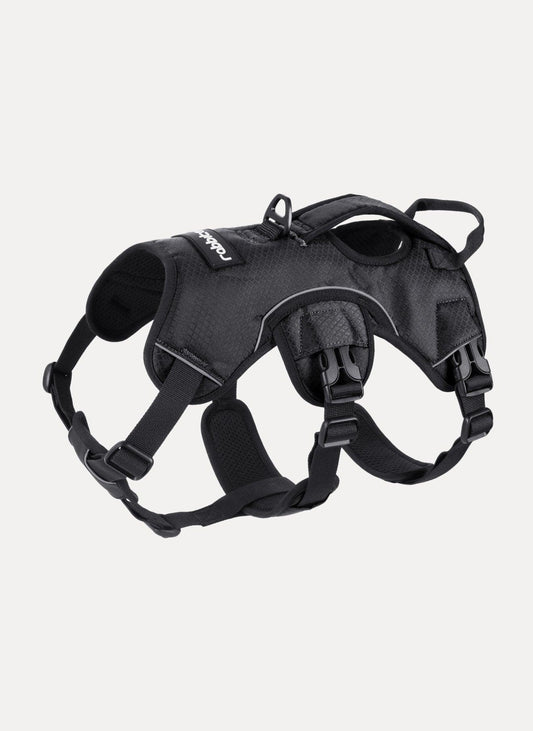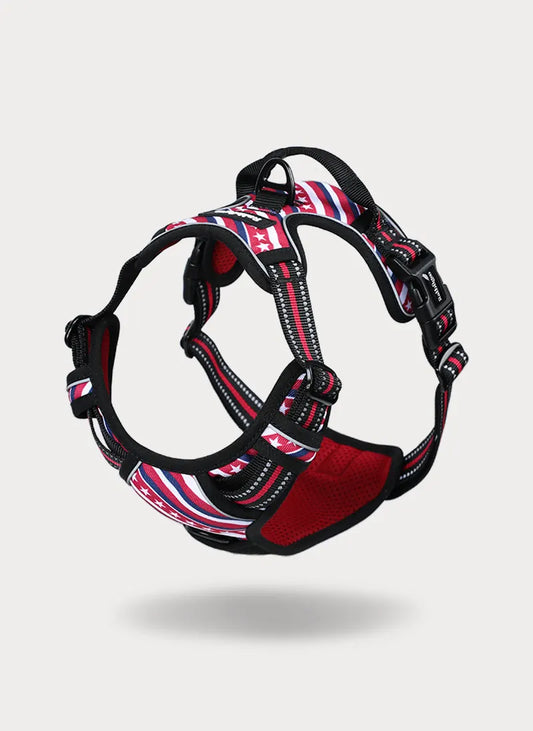5 Caring Tips For Your Dogs in Winter
As Thanksgiving draws near, winter coziness intensifies. It's the season for enjoying the snow outside your window, sitting around the fireplace with friends and family, and playing with the kids or your dogs. While you're wrapping up in scarves and jackets, have you noticed that our furry friends, our dogs, also need special care this season?
With the unstable climate of the changing season, the drop in temperature has the potential to bring certain health risks to your dog, from hypothermia and frostbite, to dry skin and a weakened immune system. Here's a comprehensive guide to winter dog care to ensure your dog stays happy, healthy and warm during the colder months.
Proper insulation
One of the most important issues in winter is keeping your dog warm. Some breeds, such as Huskies and Malamutes, are naturally equipped to cope with the cold due to their thick coats, while other breeds, especially those with shorter or thinner coats, such as Beagles and Labradors, need to be properly insulated on a case-by-case basis. Making sure your dog has a comfortable dog bed indoors is essential! This way they can curl up in the bed to keep warm in case they lose heat during the night. Also a cozy bed can relieve their fatigue and stress. If your dog spends a lot of time outdoors, in addition to purchasing the essential dog harness, you can try purchasing warm clothing or booties for them to provide a warm barrier for their delicate skin.
Skin and Paw care
Winter can be a harsh season for your dog's skin and coat. The dry indoor air combined with the cold outside can lead to dry, flaky skin and a dull coat. Rabbitgoo recommends that you simplify or adapt your dog day care routine. On days when your dog doesn't have an outing planned, reduce the frequency of bathing your dog and use moisturizing shampoos designed for dogs. When your dog returns from an outing, use simple cleaning methods such as scrubbing your dog's paws with pet wipes. Keep in mind that your dog's paws may be dry and cracked due to irritation from salt and chemicals used to melt ice, and consider using dog paw cream or petroleum jelly to form a protective barrier to protect your dog's paws.
Adjusting your dog's diet
Dogs' dietary needs change slightly during the winter months. They may need more calories to generate body heat and stay warm. You can increase their food intake, for example, by adding an extra snack, or by maintaining the number of meals and increasing the number of grams of food. In the meantime, Rabbitgoo recommends providing your dog with high quality, protein-rich foods during the winter months, such as beef, chicken breast, eggs, and tuna. High-quality fatty acids also help keep the coat healthy and provide extra warmth, which dogs can ingest by eating salmon, cod, and more. Some dogs may drink less water in cold weather, but fresh, clean water should always be available and you can add a little broth or unsalted chicken stock to encourage your dog to drink.
Tips: Before making changes to your dog's diet, consult your veterinarian to ensure that it meets your dog's specific needs.
Monitoring winter-specific health problems
Winter poses specific health risks for your dog, such as hypothermia, frostbite and Kennel cough. Routine monitoring can help you identify problems and minimize your dog's suffering. You can tell if your dog is hypothermic by whether he is shivering, lethargic or losing coordination. If frostbite occurs after your dog are out, it will most likely affect your dog's limbs and cause the frostbitten area to turn white, harden, or freeze. When you notice anything unusual about your dog, contact your veterinarian for help at the first opportunity.
Kennel Cough is a contagious respiratory infection that is more likely to be contracted while out. You can immunize your dog against kennel cough and avoid crowded places if possible.
Specific Safety Tips
Winter ushers in the cold but welcomes the warmth of the holidays. Some of the winterized items that you always have in your home as well as holiday items need to be stored wisely to avoid dogs chewing on them.
- Antifreeze: Keep antifreeze out of your dog's reach, as it contains ethylene glycol, which is highly toxic to dogs.
- Ice and snow melt: Use pet-safe ice melt and avoid rock salt. This is because rock salt can irritate your dog's paws and be ingested when your dog licks his feet.
- Holiday Decorations: Choose holiday decorations carefully, especially those involving candles, ribbons or baubles, to avoid accidental ingestion by your dog.
- Fireplaces and Heaters: Keep an eye on your dog around fireplaces and heaters to prevent burns. Or set up a barrier around them to prevent your dog from leaning through.
Conclusion
Winter a cold but warm season can be a magical time for both you and your dog. In order for you and your dog to enjoy a pleasant winter time, Rabbitgoo recommends that you take extra precautions and optimally adjust your daily care to ensure that your dog stays healthy, happy and safe throughout the winter months. Please note, however, that every dog is different and you should adapt your routine to your dog's specific situation. If you have any questions, feel free to consult your veterinarian. With a little extra love and care for your dog, winter will be a wonderful time for you to enjoy together.









